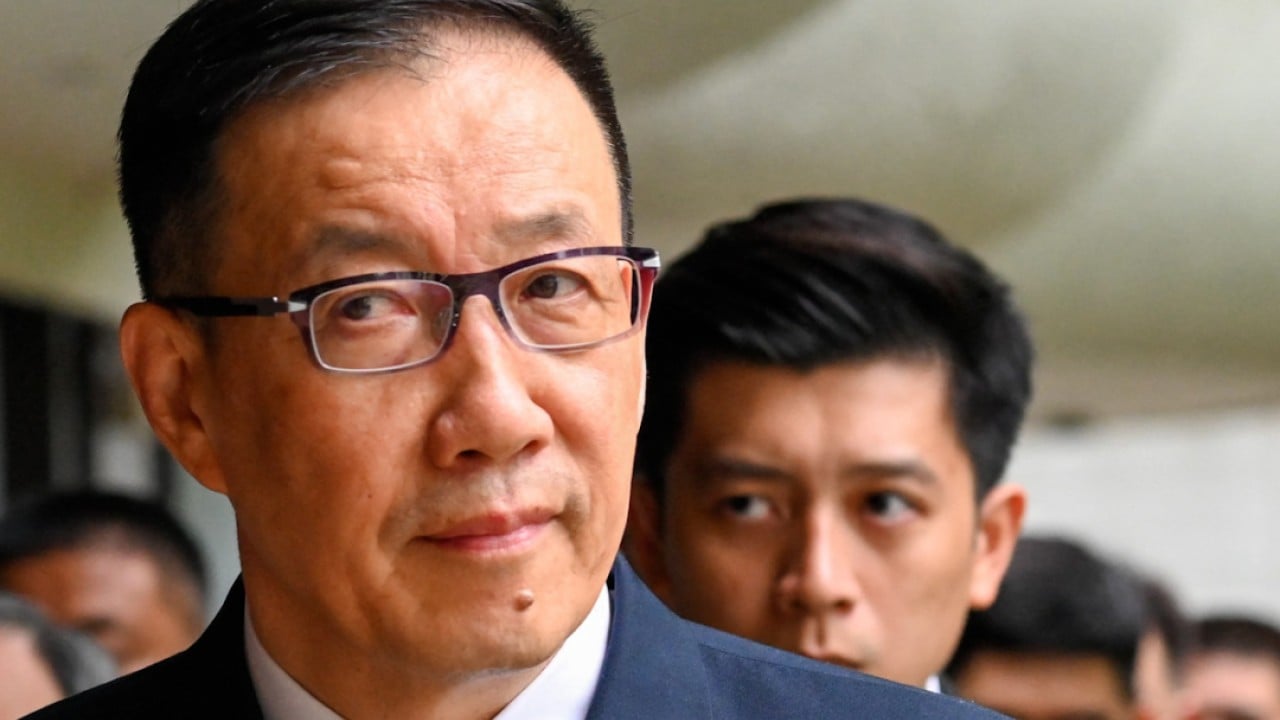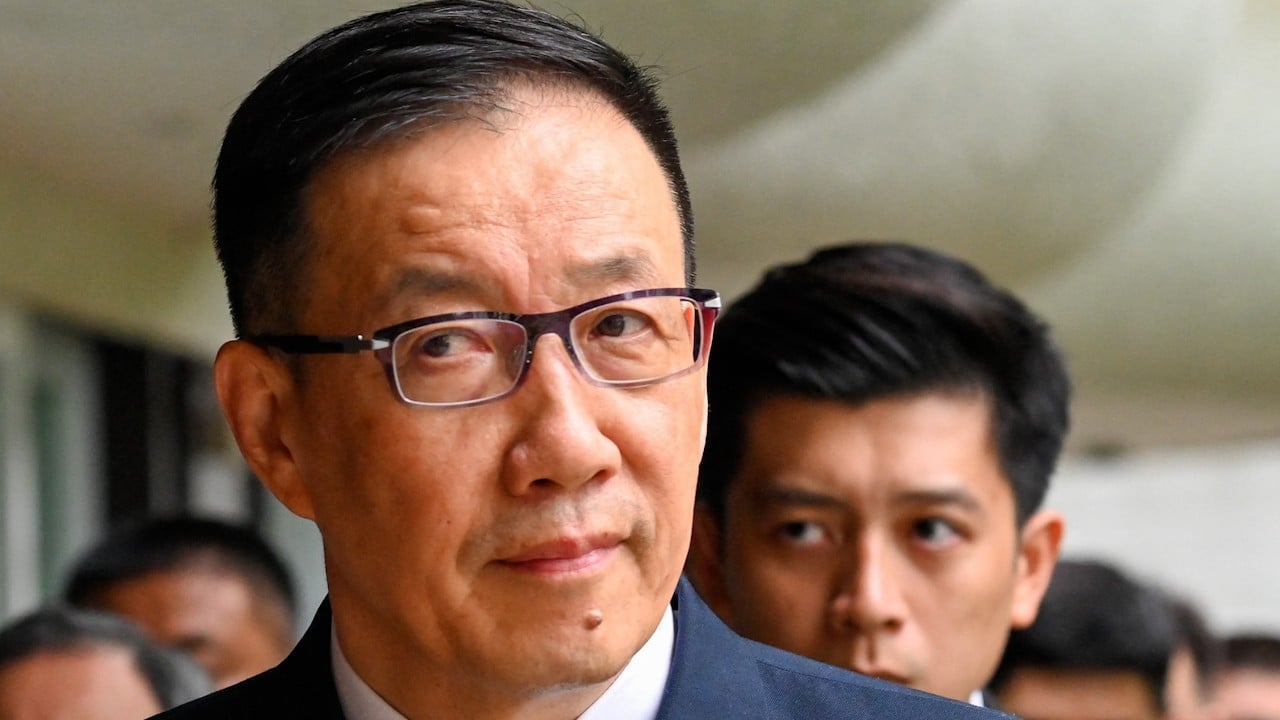The United States, South Korea and Japan are sending an “important strategic and political message” with their new trilateral military drill, which China is expected to view as “destabilising and threatening”, according to analysts.
US Secretary of Defence Lloyd Austin met his Japanese and South Korean counterparts Minoru Kihara and Shin Won-sik on the sidelines of the Shangri-La Dialogue security forum in Singapore last Sunday, announcing afterwards that the multi-domain exercise would be launched this summer.
Dubbed “Freedom Edge”– from the US-South Korea “Freedom Shield” exercise and the US-Japan “Keen Edge” drill – it will take place across domains including air, maritime, underwater and cyber, Yonhap News Agency reported, citing a South Korean defence ministry official.
“They reaffirmed that trilateral exercises will be executed in a systematic manner in accordance with the multi-year trilateral exercise plan, which was established last year following the August 2023 Camp David summit,” said a joint statement issued after the meeting.
The defence chiefs pledged to develop a framework within the year to “institutionalise trilateral security cooperation, including senior-level policy consultations, information sharing, trilateral exercises, and defence exchange cooperation”.
The statement did not include further details of the planned exercise, such as when and where it would be held.
It is the first time the three countries have confirmed the plan since the Camp David summit between US President Joe Biden and his South Korean and Japanese counterparts Yoon Suk-yeol and Fumio Kishida.
The three leaders said the countries would “hold annual, named, multi-domain trilateral exercises on a regular basis” to improve coordination and cooperation as part of efforts to deter North Korean nuclear and missile threats.
Freedom Edge will be the first regular and multi-domain joint drills between the three countries. They have previously held joint maritime and air drills but they were mostly focused on a specific area of joint operations such as missile warning or strategic bomber training.
Ramon Pacheco Pardo, an international relations professor at King’s College London, said the latest announcement was the “logical extension” of the cooperation that has been taking place since the Camp David summit.
“It is driven by the three partners’ shared concerns about China and North Korea, which is the main reason behind their cooperation,” he said.
“Conducting joint exercises will serve the three partners to assess their synergies, the strengths that each of them bring to the table, and the weak spots that each country has.”
Andrew Yeo, a senior fellow and the SK-Korea Foundation chair of Korea studies at Washington-based think tank the Brookings Institution, said China would view the move as “destabilising and threatening”.
“Beyond the military value, Freedom Edge sends an important strategic and political message to others about the US, Japan and South Korea’s joint effort to defend a rules-based international order across multiple domains,” he said.
“Warfighting in the 21st century is unlikely to be isolated to just one or two domains, but will require seamless coordination and support across a range of capabilities. The exercises are meant to improve cooperation across multiple domains in the event of an actual war or conflict.”
It comes as Washington is seeking to boost cooperation with its two Asian allies, Seoul and Tokyo, in the face of increasing Chinese and North Korean military activities.
Responding to the defence chiefs’ joint statement – which included remarks on the Taiwan Strait and South China Sea – the Chinese foreign ministry said they had “deliberately provoked” relations between China and neighbouring countries and seriously violated the basic norms of international relations.
“China firmly opposes the manipulation of group politics, any words or deeds that provoke and intensify conflicts and undermine the strategic security and interests of other countries, and the establishment of closed and exclusive ‘small circles’ in the Asia-Pacific region,” ministry spokeswoman Mao Ning told reporters in Beijing on Monday.
Pacheco Pardo from King’s College London noted that China had already accused the US of trying to create an Asian Nato.
“It has also criticised trilateral cooperation between the US, South Korea and Japan, as well as Nato-AP4 [Asia-Pacific four] ties that include both Seoul and Tokyo,” he said, referring to US allies in the Asia-Pacific region, Australia, Japan, New Zealand and South Korea.
“So China will surely be critical of this new multi-domain exercise, and will be worried about the three countries boosting their ties.”
Stephen Nagy, a professor of international relations at the International Christian University in Tokyo, said the three partners wanted to “institutionalise” the relationship and achieve “full spectrum cooperation” to strengthen their deterrence capacities amid concerns over an alignment between Russia, China, Iran and North Korea.



